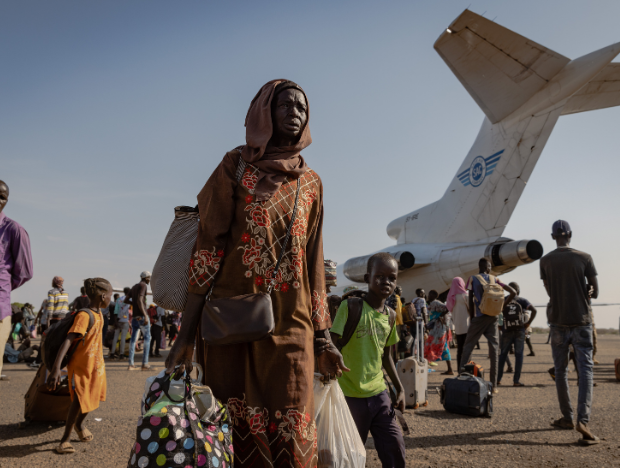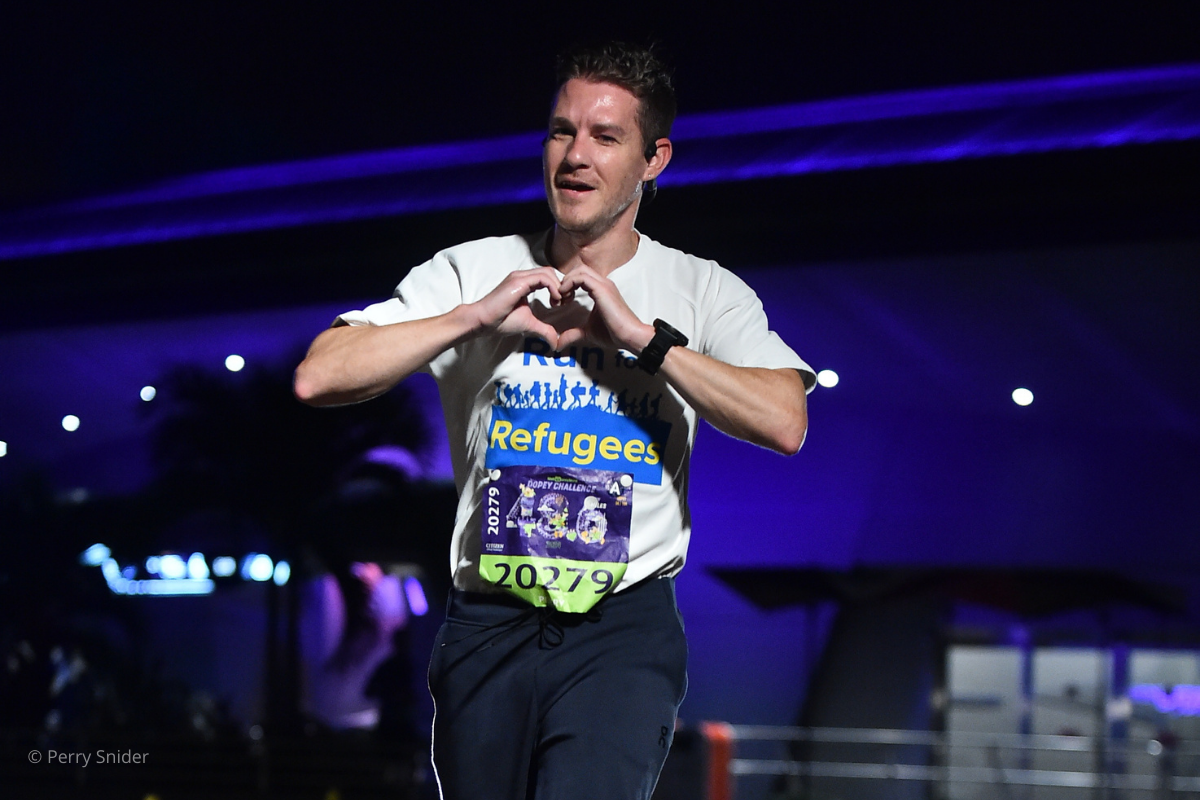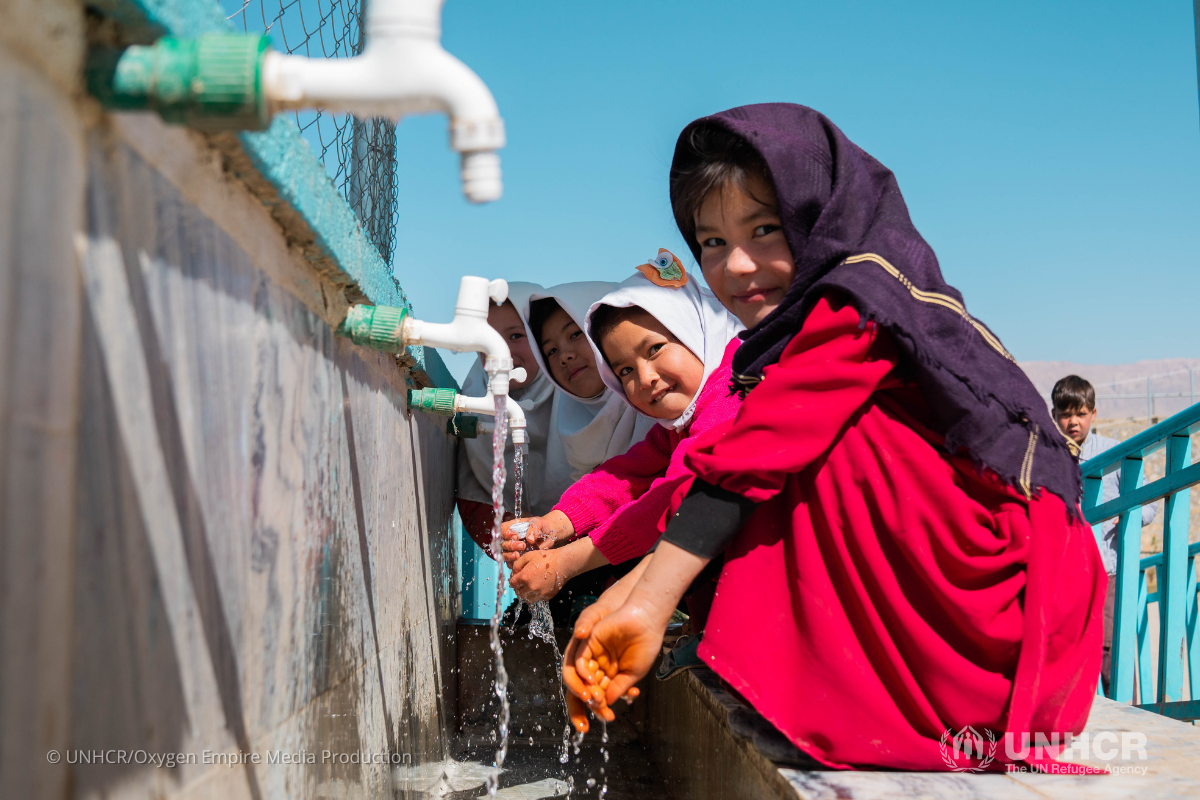Celebrating refugees who lead the way on climate action
Refugees, more than anyone, understand what it’s like to lose everything and live with uncertainty. Despite seemingly insurmountable challenges, refugees persevere forward with hope for a brighter, safer future.
Taking climate action is a global responsibility — one that requires the hope and resiliency that refugees embody. This Earth Day, see how refugees from around the world are taking action to protect their new communities and the planet through innovative projects.
Said
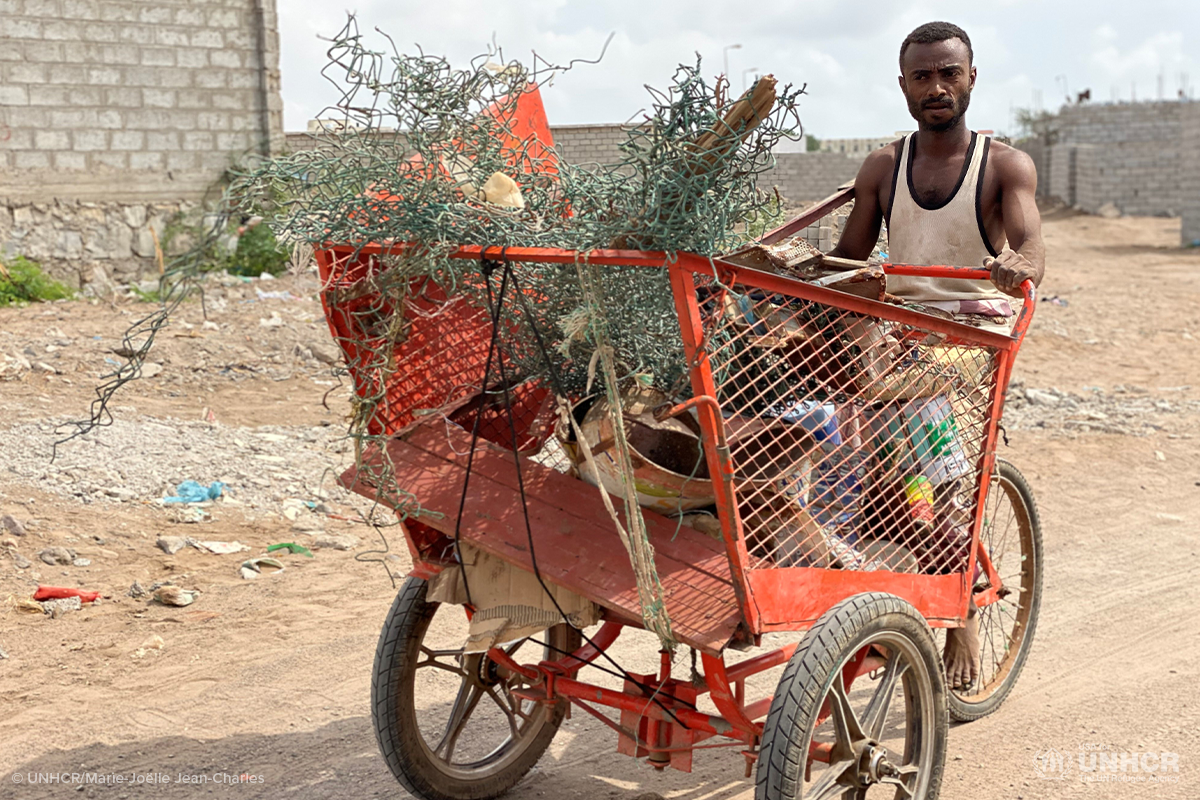
Yemen faces one of the largest humanitarian crises in the world with 80 percent of its population in need of humanitarian assistance. Said, an internally displaced Yemeni, finds work by collecting recyclable material that he can resell, such as plastic bottles and cans.
UNHCR provides him with tricycles and garbage bags to help increase his collection output. Through this program, Said earns money to help support his family while also cleaning up and protecting the environment.
“At the end of the day, I make enough to feed my family and pay for small expenses,” Said explains. “With the tricycle, in just a little over two months I was able to improve my life.”
Sahera
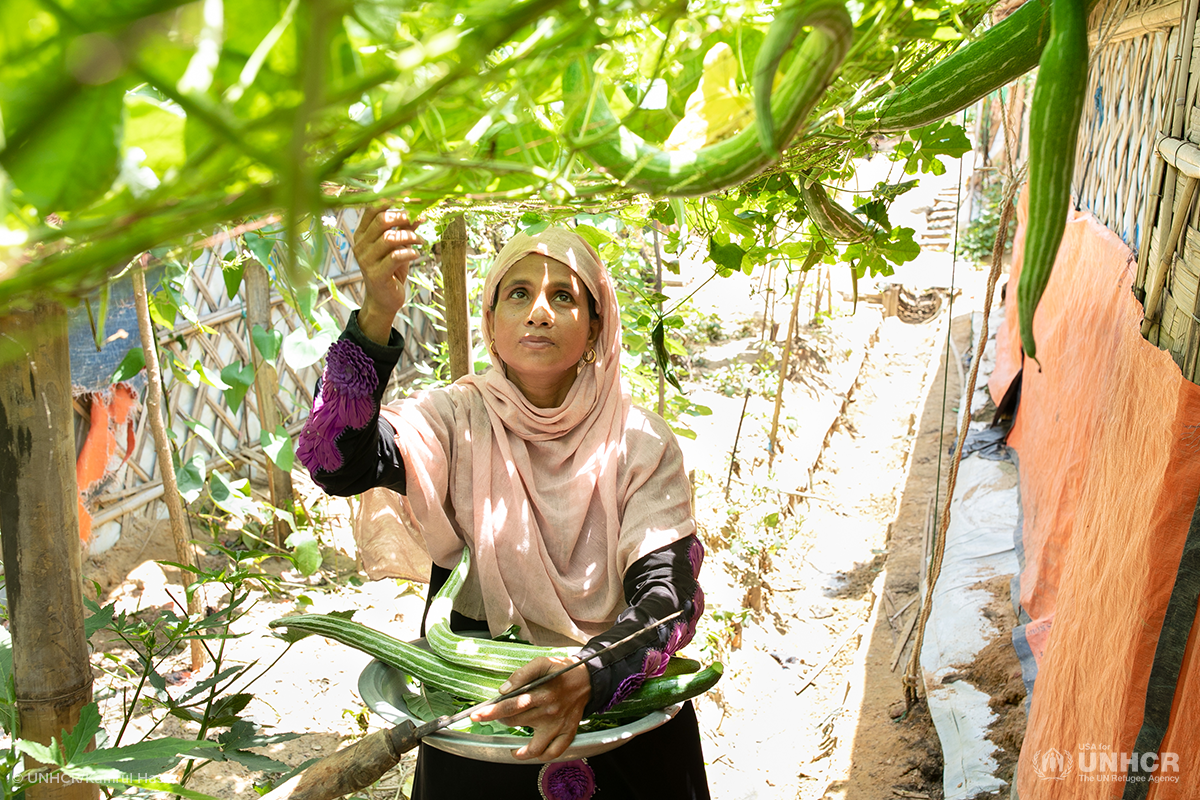
“My children get excited to see the vegetables. It reminds us of our farm back home.”
Sahera lost her home and her farm when she was forced to flee Myanmar in 2017, but through a program with UNHCR, Sahera was able to rebuild her garden and grow her own crops again.
“Not only do we have vegetables for ourselves, we often share them with our neighbors,” she says. “If we have leftover produce, we sell it to nearby shops.”
Along with providing Sahera and other refugees with the means to rebuild their farms, the project also helps combat erosion and poor soil health in the area. UNHCR and host community partners work with refugees to determine which crops are best for restoring the earth and combating the effects of deforestation. In the long-run, this project will also help protect the settlement from landslides during the monsoon season.
Daniel
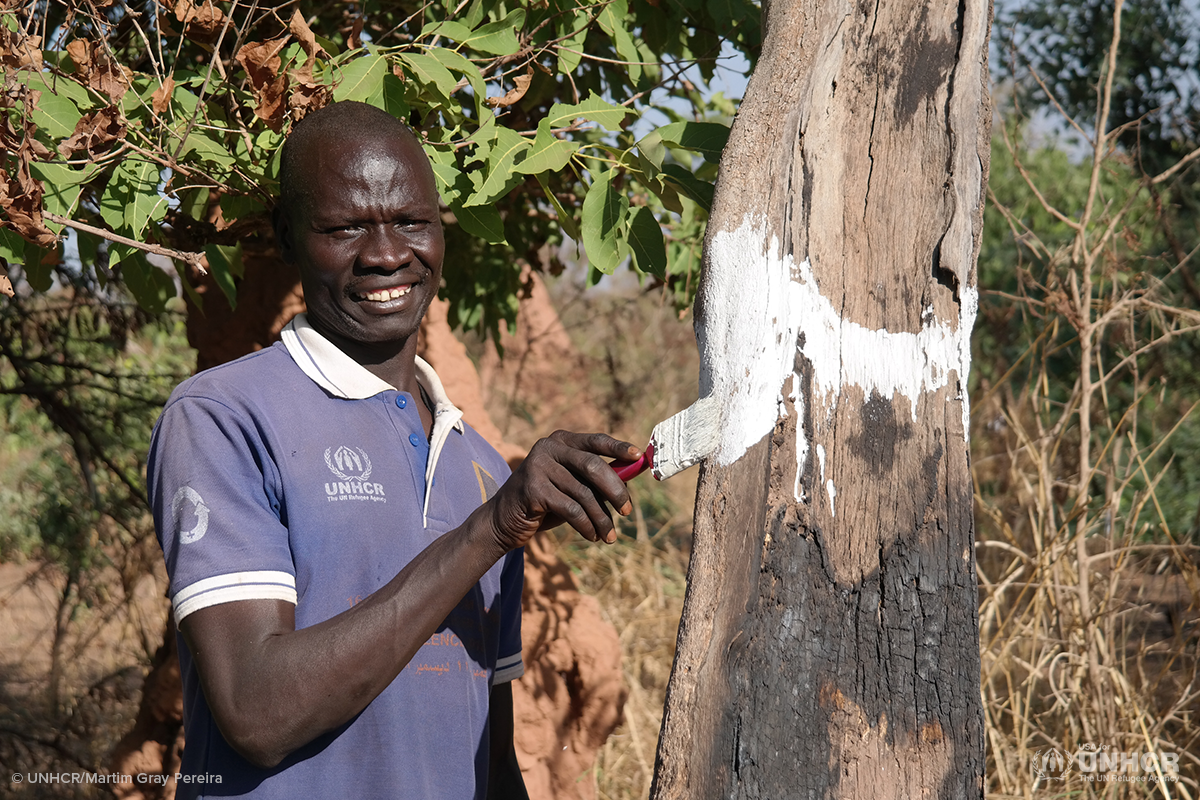
“During conflicts, trees can be our best friends as they provide us shelter and hide us from those who may want to cause us harm.”
Daniel is a Sudanese refugee living in Ajoung Thok refugee camp in South Sudan. Working with UNHCR and members of the host community, Daniel marks trees in the area to prevent them from being cut down. The markings inform the local community that the trees are protected and cannot be used for wood or fuel. Forest guards can also take note of the markings to enforce protection against deforestation.
In 2019, this project saved more than 20,000 trees from being destroyed. Through this program, refugees build a peaceful relationship with members of their host community and protect their home from illegal deforestation and logging.
Saverina
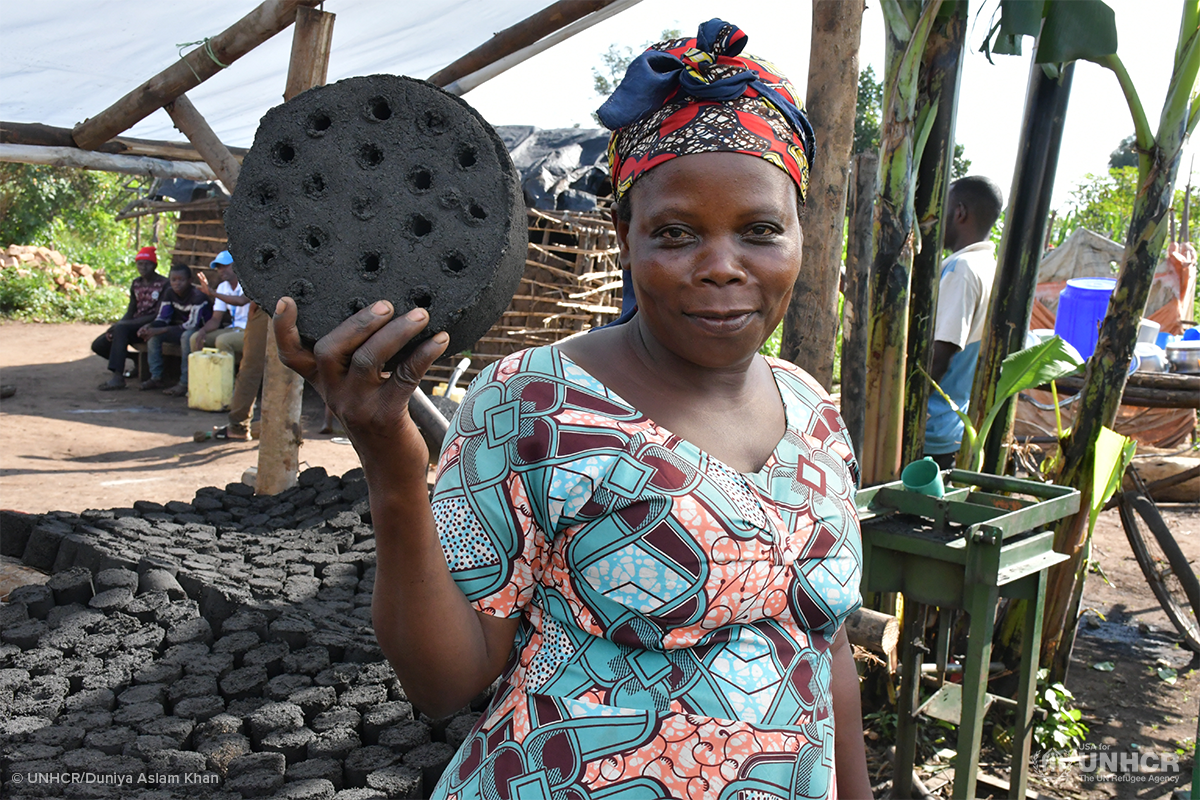
Saverina is a Congolese refugee in Uganda’s Kyangwali refugee settlement and a participant in a Village Savings and Loan Association (VLSA). In a VLSA, refugees save money together and take small loans from their joint savings to start their own businesses.
With her loan, Saverina began a briquette-making business in her home. Briquettes are bricks made from agricultural waste that serve as fuel alternatives. Compared to firewood, they maintain heat longer, cost less and last longer. Being made from recycled materials and producing very little smoke also makes them more environmentally friendly.
Lilian
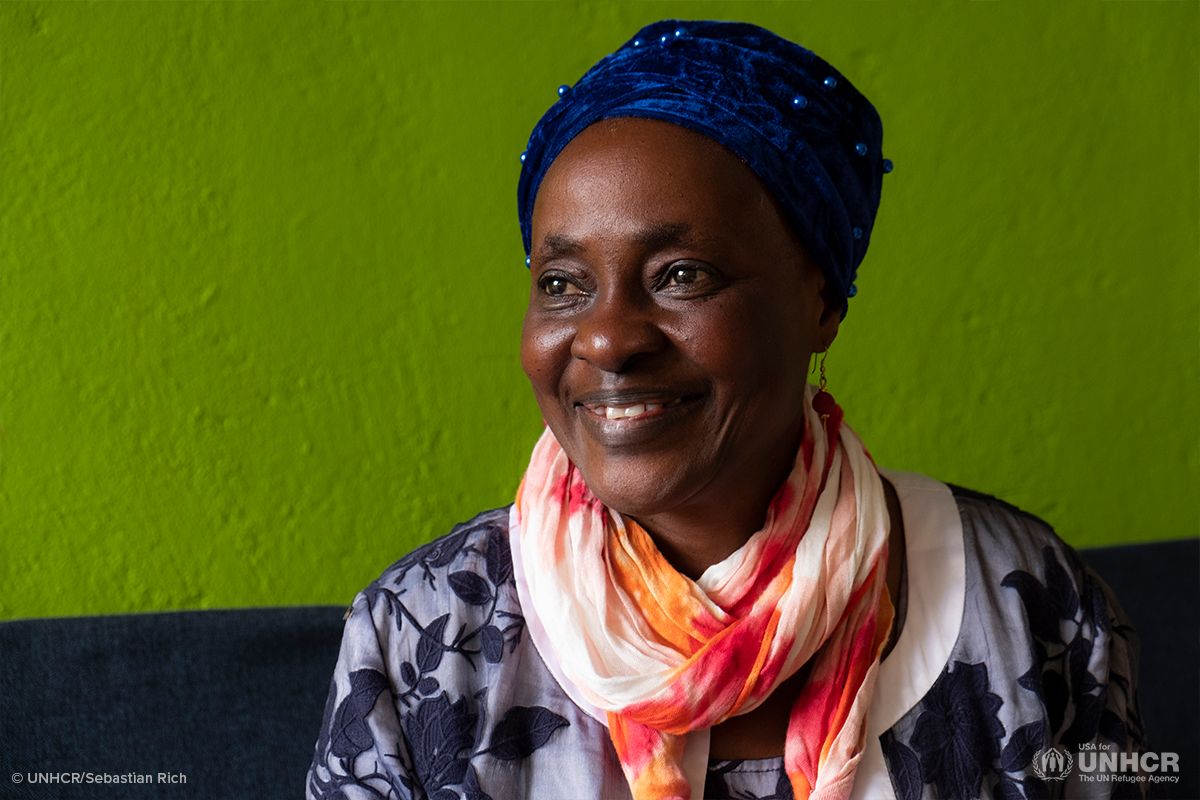
“My most beautiful beadwork is made out of recycled products and this makes them more eco friendly.”
Lilian is part of UNHCR’s Made 51 project, which provides refugee artisans access to resources and helps them market their work. Before she was forced to flee her home in Uganda, Lilian was a skilled artisan jewelry maker. After arriving in Kenya, she participated in a 10 day training program with Made 51 that taught her entrepreneurial skills and helped her explore her interest in recyclable materials.
“Before the training, I used to use common beads but now I have moved to something more exotic,” Lilian shares. Her jewelry now uses an array of recycled materials, such as glass, horns and bones.
How you can help…
Protecting the planet is a global responsibility, and every individual action counts. Refugees and displaced people around the world are doing their part to fight climate change. By becoming a monthly donor, you can stand in solidarity with refugees and ensure that they receive the humanitarian assistance they need.
